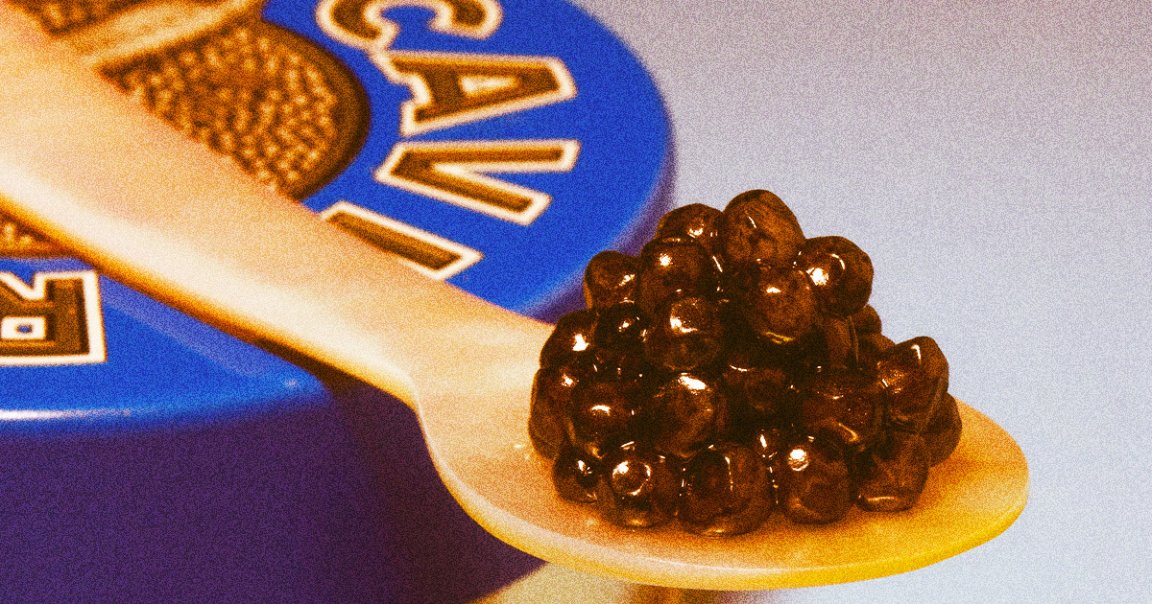
Ersatz Eggs
Sorry, Europeans: your delectable and pricey caviar comes with a huge caveat. According to new research, half of it is illegal — and in fact may not even be caviar at all.
As detailed in a new study published in the journal Current Biology, a team of researchers examined nearly 150 samples of commercial caviar and sturgeon meat from four European nations — Bulgaria, Romania, Serbia, and Ukraine — near some of the last remaining wild populations of the fish species.
To begin with, they found that some of the fish eggs contained zero traces of sturgeon — which as any gastronome will eagerly tell you, means that they don’t technically count as caviar, but as merely roe.
More pressingly, however, is their legality. Sturgeon are critically endangered, and thus only caviar coming from farmed sturgeon is allowed to be sold internationally. But the staggering proportion of illegal samples identified by the researchers suggests that efforts to protect wild species of the fish are falling deeply short.
“Our results indicate an ongoing demand for wild sturgeon products, which is alarming, since these products endanger wild sturgeon populations,” the researchers wrote in the study.
Damning Demand
Found only in the Danube River and the Black Sea, just four species of caviar-producing sturgeon remain in Europe, and all of them have been protected by the Convention on International Trade In Endangered Species of Wild Fauna and Flora (CITES) since 1998.
In spite of that formal protection, though, an analysis of the samples’ DNA and isotope patterns revealed that an alarming 21 percent of the caviar came from wild sturgeons — which is very fishy and very illegal.
Before proceeding, a salve for the wounded caviar connoisseur: just three samples — still a notable two percent, mind you — turned out to be total fakes coming from catfish and perch rather than sturgeon.
Still, 29 percent of these products violated CITES regulations by labeling the caviar with incorrect information on its species and country of origin, while a total 32 percent constituted outright “consumer deception” — in most cases meaning that they were marketed as being “wild” when they actually came from a fish farm.
According to the researchers, it’s sort of an open secret over there that these “wild” products, fake or not, get sold with little pushback. That such a demand exists should give lawmakers and conservationists considerable pause. And, as the researchers note, European regulators can’t cry foul and shift the blame to foreign poaching, because the illegal fishing is happening right at home.
“Although poaching and illegal wildlife trade are often considered a problem in developing countries, these findings bear evidence that a high ratio of poached sturgeon products originates from EU and accession candidate states,” the researchers wrote. “The control of caviar and sturgeon trade in the EU and candidate member states urgently needs improvement to ensure that Danube sturgeon populations will have a future.”
More on fishing: People Are “Fishing” by Just Throwing Dynamite in the Water